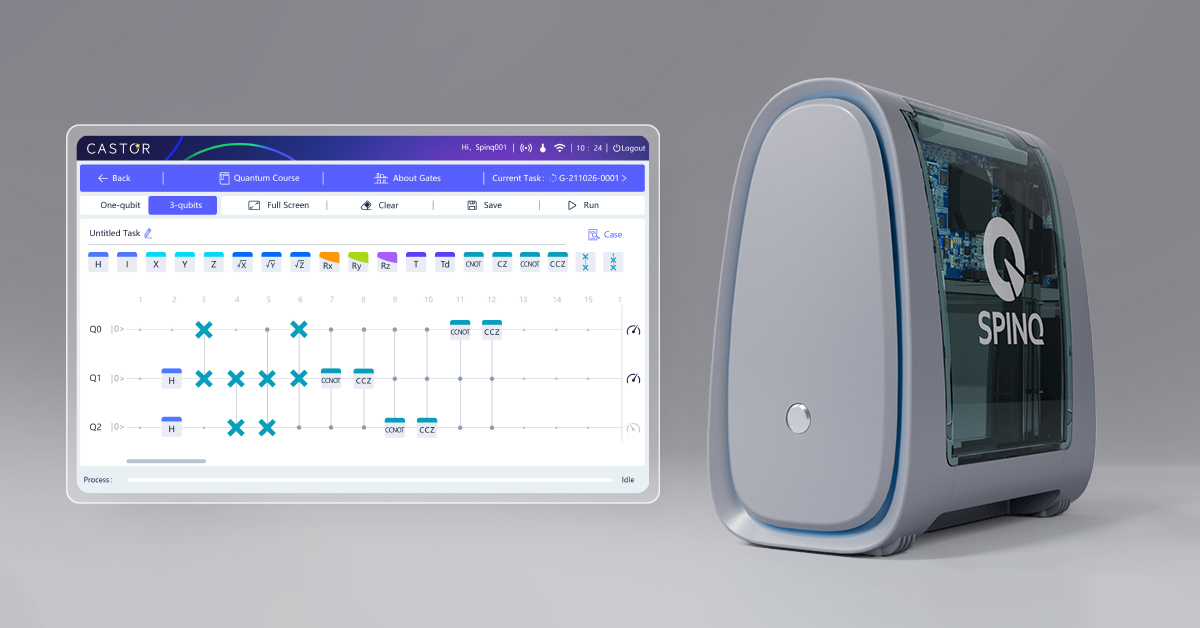Quantum Cloud: Unraveling the Future of Computing
2025.06.23 · Blog quantum cloud
What is a Quantum Cloud?
A quantum cloud can be defined as a service that allows users to access quantum computing resources via the cloud. It eliminates the need for individual users or organizations to invest in expensive, on - premise quantum computing hardware. Instead, they can tap into a network of remote quantum computers, just as they would access other cloud - based services like storage or software applications. This democratizes quantum computing, making it accessible to a wider range of researchers, developers, and businesses.
What is the Quantum Cloud Made of?
At its core, a quantum cloud consists of a network of quantum computers. These quantum computers are equipped with quantum processing units (QPUs), which are the equivalent of central processing units (CPUs) in classical computers. QPUs operate using quantum bits, or qubits. Unlike classical bits that can represent either 0 or 1, qubits can exist in a superposition of 0 and 1 states simultaneously. This property, along with quantum entanglement (where qubits can be linked in such a way that the state of one qubit is instantaneously related to the state of another, regardless of distance), forms the basis of quantum computing's immense computational power. Additionally, the quantum cloud infrastructure includes servers, high - speed networks for data transfer, and software stacks for managing user requests and quantum operations.
How Does Quantum Cloud Computing Work?
When a user submits a quantum computing task to the quantum cloud, the following steps occur. First, the user's quantum algorithm, written in a suitable quantum programming language such as QASM (Quantum Assembly Language) or a Python - based quantum library, is sent to the cloud platform. The cloud then routes the task to an available quantum computer within its network. The quantum computer's QPU executes the quantum operations specified in the algorithm on the qubits. During this process, the qubits interact with each other according to the rules of quantum mechanics, performing complex calculations at speeds far beyond what classical computers can achieve. Once the computation is complete, the results are sent back to the user via the cloud network.
Advantages of Cloud - Based Quantum Computing
-
Cost - Efficiency: Building and maintaining a quantum computer is extremely expensive. By using a quantum cloud, users can avoid these high upfront and maintenance costs. They only pay for the computing resources they actually use, similar to the pay - as - you - go model in classical cloud computing.
-
Accessibility: Quantum cloud services open up quantum computing to a broader audience. Researchers in academic institutions with limited budgets, small - and medium - sized enterprises (SMEs) exploring quantum - enabled solutions, and even individual enthusiasts can now experiment with quantum computing without having to own the hardware.
-
Scalability: Quantum cloud providers can scale their services by adding more quantum computers to their network as demand grows. This means that users can access increasingly powerful quantum computing resources over time, without having to upgrade their local infrastructure.
-
Collaboration: Quantum cloud platforms facilitate collaboration among researchers and developers from different locations. Multiple users can work on the same quantum computing project, sharing data and algorithms, accelerating the pace of innovation in the field of quantum computing.
How does SPINQ Cloud Computing Differ from Classical Cloud Computing?

SPINQ Cloud is a leading quantum computing cloud platform with several unique features that set it apart from classical cloud computing.
-
Quantum Computing Focus: While classical cloud computing is mainly designed for classical computing tasks such as running business applications, storing data, and providing software - as - a - service (SaaS), SPINQ Cloud is dedicated to quantum computing. It offers access to real quantum computing systems, including NMR (Nuclear Magnetic Resonance) and superconducting chip - based systems. For example, it provides quantum computers with 2, 3, 5, and 8 qubits, allowing users to experiment with different levels of quantum complexity.
-
Quantum Programming Support: SPINQ Cloud supports multiple types of quantum programming. It offers graphical interface programming, which is intuitive for beginners, as well as more advanced programming in QASM and pulse sequences. Additionally, it has a software developed by its own team that supports quantum programming based on Python, providing users with rich quantum algorithm interfaces. This is in contrast to classical cloud platforms that support only classical programming languages for traditional computing tasks.
-
High - Performance Simulation: SPINQ Cloud includes a high - performance simulation platform with up to 24 qubits. This allows users to simulate quantum experiments before running them on real quantum hardware, saving time and resources. In classical cloud computing, simulation capabilities are focused on classical systems and do not leverage the unique properties of quantum mechanics.
-
Task Management: It supports machine management of quantum computers of different sizes for different technological routes. It can queue and schedule multi - user tasks to available machines, ensuring efficient utilization of quantum computing resources. Classical cloud computing task management is optimized for classical workloads and does not account for the unique requirements of quantum computing, such as qubit state management and quantum error correction.
-
Result Visualization: SPINQ Cloud graphically displays experiment runs and results. For large - qubit experiments, results can be sorted by probability, searched, and support fuzzy query. This kind of result visualization is tailored to the needs of quantum computing, where understanding the probability distribution of quantum states is crucial, and is not a feature typically found in classical cloud computing platforms.
In conclusion, quantum cloud computing, with platforms like SPINQ Cloud leading the way, is opening up new frontiers in computing. It has the potential to revolutionize industries such as finance, healthcare, and materials science by solving complex problems that are currently intractable for classical computers. As the technology continues to evolve, we can expect even more powerful and accessible quantum cloud services in the future.
Featured Content






